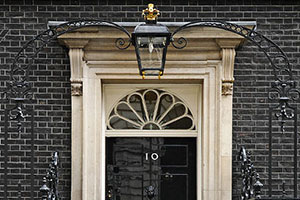Conservative calamity could lead to Softer Brexit

The loss of a parliamentary majority by Theresa May’s Conservative party has cast doubt on the future of Brexit, with its new political partners and its own ministers said to be calling for a much softer Brexit.
While the Conservatives are still the biggest party within the House of Commons, it has been forced to call on Northern Ireland’s Democratic Unionist Party (DUP) to help it create a workable majority.
While the 'confidence and supply' deal between the two parties hasn’t yet been finalised, the DUP is known to want a much ‘softer’ Brexit than that originally proposed by Theresa May.
The Unionists, led by Arlene Foster, want to minimise the impact of Brexit on Northern Ireland and its relationship with the Republic of Ireland – which will signal a need for a much less hardline approach to the forthcoming Brexit negotiations with the EU.
Theresa May had promised that ‘no deal was better than a bad deal’, but this hardline approach must now be jettisoned.
Thursday’s calamitous result has also left May hugely weakened within her own party, and the Prime Minister has already signalled a move towards conciliation with pro-European MPs.
Sir Michael Fallon, the defence secretary is among those in the Conservative party publicly exerting pressure for a re-think on Brexit.
He told the BBC’s Andrew Marr Show yesterday: “We want to work with business on this. It is very very important that we are careful about the existing trade we do with Europe, about access to the single market in whatever new arrangement that we come to.”
ABPI response
So what might this mean for the UK pharmaceutical industry? While the sector had vehemently backed the ‘Remain’ vote in last year’s referendum, it has largely come to terms with the prospect of Brexit.
Nevertheless, the idea of the government taking a more flexible, ‘softer’ approach to Brexit will undoubtedly be welcome in the industry, as the sector has always made it clear it wants to remain as closely aligned with the EU as possible.
A spokesman for the ABPI played down the significance of this latest political drama, however.
He said the industry organisation had always supported a ‘pragmatic’ approach to the challenges of Brexit, and said the government had (in principle) pledged to support its calls for a ‘free and frictionless’ border and open access to talent in highly skilled industries, such as pharma.
Nevertheless, the shock election results will have a long-lasting impact on UK politics and Brexit – with many betting that a new election won’t be far away.
Even if May manages to cling on to power, there could be significant delay to Brexit and many other areas of government policy, such as the Life Sciences Industrial Strategy.
The first sign of that disruption came today, when it emerged that the Queen’s Speech, which sets out the government’s legislative programme, has been delayed.
The Queen’s Speech had been scheduled for Monday 19 June, but will now be delayed by a few days in order for the Conservatives and the DUP to agree on a legislative plan – with several manifesto pledges expected to be watered down or abandoned.
Finally, May has announced a partial reshuffle of her cabinet, including the return of Michael Gove and Damien Green, the latter being a well known pro-European MP.
New appointments will also be needed at the Department of Health, as two junior ministers, MPs Nicola Blackwood and David Mowat, both lost their seats.
Jeremy Hunt, who has been the health secretary since September 2012, will remain in the post.










